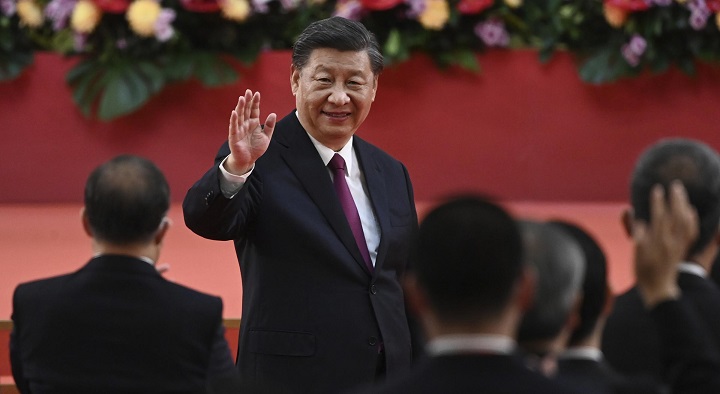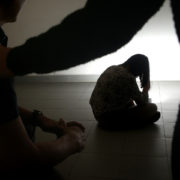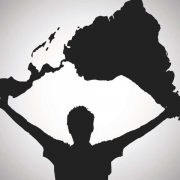
Xi Jinping the conservative, the neo-Maoist, the communist, the warmonger. Directly or indirectly, these adjectives are all consistent in characterizing abroad, in the West, the president of China, who should extend his rule for life or another five years at the next Party Congress in the fall.
Of course, we don’t know, but the glimpses I have collected over many years about his personal life may tell a different story, one that is not easy to box in a simple frame. Some of the stories are impossible to verify and may be partly false. I believe they are accurate, although I could change my opinion with more information.
A life of Xi
He was born on June 15, 1953, when his father, Xi Zhongxun, was the party’s head of the propaganda department. He was the second son of his father and his second wife, Qi Xin.
He spent his childhood close to the Great Helmsman, Mao Zedong, in Zhongnanhai, the residence of the party leadership. In his father’s office, there was Mao’s wife, Jiang Qing, who later became notorious during the Cultural Revolution; and Mao’s former secretary, Zhong Dianfei, purged as a rightist in 1957.
His father, born in 1913, came from a family of landowners in Fuping County in Shaanxi. He was an idealist and had joined the Communist Youth League when he was 13. At 15, in 1928, he was arrested by the KMT nationalist authorities. In 1935 he and his two pals, Liu Zhidan and Gao Gang, were just about to be shot as rightist traitors when Mao got to the Yan’an base and saved them. Both Liu and Gao subsequently didn’t end up well.
But for Xi Zhongxun, it all seemed different. In 1957 he managed to weather the anti-rightist campaign, and in 1959 he became vice premier under Zhou Enlai. In 1962, however, he was purged, accused of secretly supporting Gao Gang, who had been executed in 1954 for plotting to move against Mao from his base in Manchuria.
Xi Jinping, barely nine years old, lost all his privileges overnight. He went from a house with cooks and servants to a modest abode where his mother tried to keep the family together. Things got even worse in 1965, at the Cultural Revolution’s onset. His father was publicly humiliated in a big parade. The family was branded “black elements” and thus shunned and bullied by other families and children. Red Guards ransacked the house. The year after, at 13, Xi Jinping was pressed to leave school and go to the countryside to live as a peasant and learn from them, as Mao put it. All the kids from the big cities had to do it.
Living conditions in the city and the countryside were very different. Food was scarce; rooms had no privacy, and dozens slept on the same kang, a brick structure with coal burning inside. He had to work in the fields for very long hours and live in a cave. He couldn’t take it and ran back home to Beijing. He tried to hide there, but his mother, possibly afraid of the backlash for him and the whole family, reported on him and pushed him back to the village. He was arrested and punished by being forced to dig ditches.
Yet once back in the village, unlike most of his contemporaries, he did well. He was one of the few “rusticated intellectuals” who climbed up the local ladder and became brigade chief, a remarkable feat at the time. Then most of the youth just did nothing and tried to live off the peasants, who in return hated them.
Thanks to his success, Xi managed to join the party in 1974, on his tenth attempt, and the year after, he was recommended to go to university as a worthy peasant. College entrance exams were closed then, and only soldiers, workers, and peasants could get in if recommended by their unit. He studied chemical engineering at the prestigious Tsinghua University.
Things were turning out well. In 1978 his father was rehabilitated. In 1979 Xi Jinping started working with Geng Biao, a good friend of his father and head of military intelligence.
His father then became head of the Guangdong military region and promoted the development and liberalization of Shenzhen. He kept on rising, moving to the Politburo as vice premier and minister of defense when Hu Yaobang was party secretary.
Yet his luck was short-lived. In late 1986 Hu Yaobang was criticized and demoted. He was accused of supporting the student protests that had erupted in Shanghai. Xi Zhongxun sided with Hu and was removed as well.
At the time, young Xi was county secretary in Zhending, in Hebei province, not far from Beijing. He traveled back to Beijing from time to time. In 1986 he was moved to Fujian. During the 1989 student protests in Tiananmen, he was possibly in Beijing for a few days. At the time, his father and Marshall Nie Rongzheng signed a petition supporting the students.
After the bloody crackdown, his father’s political luck was lost forever. Young Xi might have been sympathetic to the students, and his political career might have been in jeopardy; however, thanks possibly to the help of his father’s friends, he saved his skin and went on with his job.
In the late 1990s, Fujian became the focus of a campaign against the local mafia smuggling enterprises, aided by some in the military. Not involved in the smuggling rings, Xi managed to stay afloat and replace the cadres who had been arrested. It might have been his big break.
Learning from experience and seeing America and China
All these experiences, his own and his father’s, proved something constant: There is no risk in being to the left of the party. Whereas if you are to the right of the party, liberal, your life is in constant jeopardy; you can be put down at any given moment. This lesson perhaps came also from his mother, who set him back on his career by being loyal to the party and reporting on him. If she hadn’t done so, Xi would never have become president of China.
Another lesson is that you need to have as much power as possible in China, like Mao of Xi’s youth, because everyone else will be ready to put you down.
Then, if this is correct, Xi Jinping is no ideologue. He is a survivor, and in being a survivor, his experiences taught him that he needs to control the party and to control the party, he has to use a left rudder.
The party is a soulless apparatus concerned only about its own survival and ready to do anything for it. But it’s also a band of people willing to forgive and forget many mistakes if an authentic purpose is found or if the guy is “one of us.” Xi would not have risen if the party hadn’t cared for him. It’s a band of devils or angels, according to the point of view in Goethe’s terms[1]. One can’t avoid coming to terms with it to survive and thrive.
Then he learned from his mother that sticking with the party eventually can save you. The party rewards loyalty and affection to the institution through thick and thin. In some ways, don’t the church and old established organizations teach the same? Love and being together is more important than being right. Is truth more than love or the opposite?
Then reform and opening up may be nice, but they are extremely risky. Not only because they can go wrong but also because they expose you to the wrath of the party, which is ruled from the left, as we saw.
On the other hand, Xi proved time, and again he is ready to confront parts of the party ruthlessly and decisively. Even before the famous anticorruption campaign, his move against his rival, Chongqing party chief Bo Xilai, in 2012 was unexpected. Just months before, although he was the designated party chief and thus higher than Bo, he had gone to Chongqing to pay homage to Bo.
But when the wind changed, Xi wrested all the power he could get from party elders, possibly threatening to resign, and then moved to wipe out Bo and his allies.
The party elders, five years earlier, had chosen Xi over Li Keqiang, who then became prime minister, thinking that Xi would be more ting hua (obedient) to their wishes and thus, they would continue to pull the strings from behind the scenes.
How to survive the future?
Xi is a guy who looks at what may save him and the country first and foremost and moves accordingly. Then the issue is, what is the international environment telling Xi to do? Gradually, but consistently since 2005, before Xi had even secured his slot as heir apparent (it happened in 2007), China perceived that the US was declining and China was on the rise[2].
Is the present Chinese predicament pushing Xi to make liberal reforms? Maybe not. Why? Because Russia may still be winning politically, if not militarily, in Ukraine and Europe[3]. Putin may come out stronger than before from the Ukrainian crisis. Yes, he may lose, but it is still uncertain, and one has to wait to see it.
Also, the situation is highly unclear in the United States, where Donald Trump is still a loose cannon, and it is very doubtful what will happen with him.
Will the American establishment and the legal system allow Trump to run in the next presidential election? And if he runs and loses, will he accept defeat? If he doesn’t accept a defeat, what will happen? Will there be a revolution?
What will happen to the system if he’s not allowed to run? Will he become a martyr, or will American society be split? And if Trump runs and wins, will America become some kind of dictatorship? Or will Trump just be a parenthesis, with US democracy sailing on?
And as an autocrat, it may be easier for Trump to get on with other autocrats. Following an American turn, democracy worldwide could decline.
After all, democracy in history had its ups and downs. Athens was a democracy and yet lost to Sparta, which wasn’t.
Rome was a republic and fairly open, with elections. Yet after a period of civil wars, it became an empire. Democracy rose again after over a millennium in Italy during the Renaissance, then declined to sprout once more in England and France in the 18th century. Are we approaching the end of democracy in the world?
Will democracy then disappear from America and maybe Western Europe?
Or what if democracy wins and Trump vanishes?
Or what is happening now in the US is just an episode. In the 1960s, America was on the verge of civil war; a president was killed in mysterious circumstances. Europe and Japan went through massive social turmoil. Foreign-funded terrorists were on the loose in half of the planet. Communism was spreading all over the world, and it seemed unstoppable.
Compared to that, what is happening now is peanuts.
But then why should Xi move before there is a clear horizon? Xi could have reasons and the necessary clout to turn the party around when the direction is clear. After all, Faust had a pact with the devil, but if you are strong enough and have God on your side, you can reclaim your soul and beat the devil, the party’s left wing in this case. It happened with Deng in the late 1970s.
These questions may be far-fetched looking at the situation from across the Atlantic, but not so looking from Beijing, which in the past seven decades went through all kinds of changes.
If something massive happens in the US, maybe the situation for Xi Jinping and China could be different. It could be worse because a more authoritarian United States might try to push its national agenda more strongly and therefore impose changes on China more bluntly. However, those changes might be different than those China would have to concede to a more democratic America.
What is the truth in international events now? Truth is complicated in the Western tradition; it comes with God, being, and the verb to be. Truth in Chinese tradition is simpler; it is results, and victory proves it right.
Then, in this uncertain situation, it may be wise for Xi Jinping to take his time and wait and see what happens. It could be the broad outline of the Party Congress in the fall.
Yet external requests are one thing, and domestic necessities are another.
For its own domestic necessities and survival, China needs to make its RMB fully convertible, put its accounts in order, and expand its potentially huge internal market. It requires a more realistic approach to Covid and to its foreign policy from Russia to Taiwan to neighborly ties.
These changes, independent of whatever happens in the United States, require some kind of domestic political reform. Without that, the internal front could make China’s life difficult and even impossible, even without the United States.
[1] See Edward Luttwak https://www.lrb.co.uk/the-paper/v43/n11/edward-luttwak/goethe-in-china
[2] See http://www.settimananews.it/informazione-internazionale/three-challenges-for-xi/
[3] See http://www.settimananews.it/informazione-internazionale/three-challenges-for-xi/





